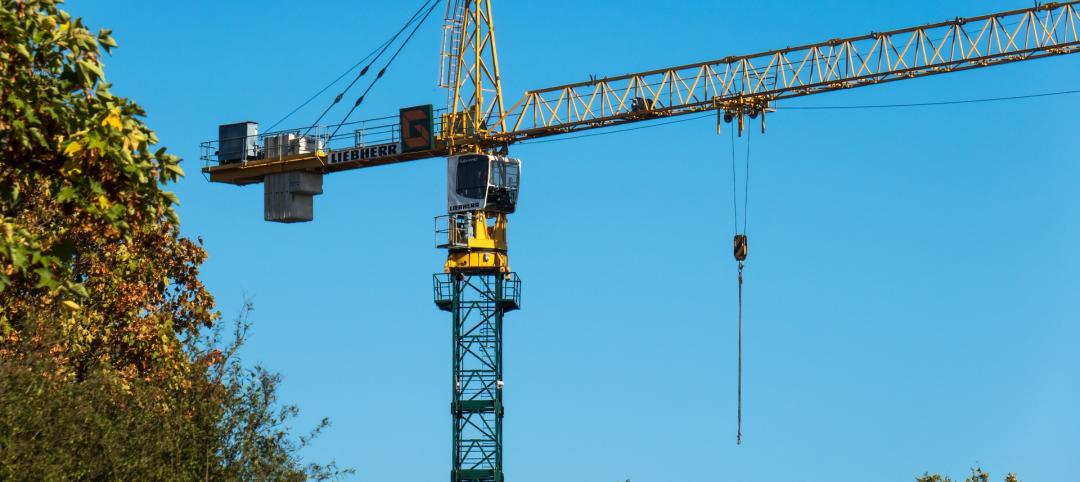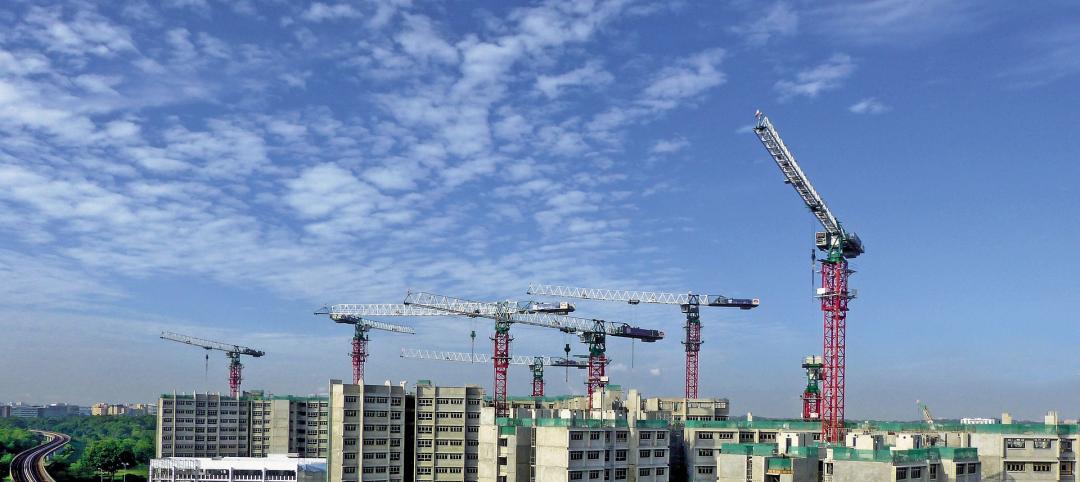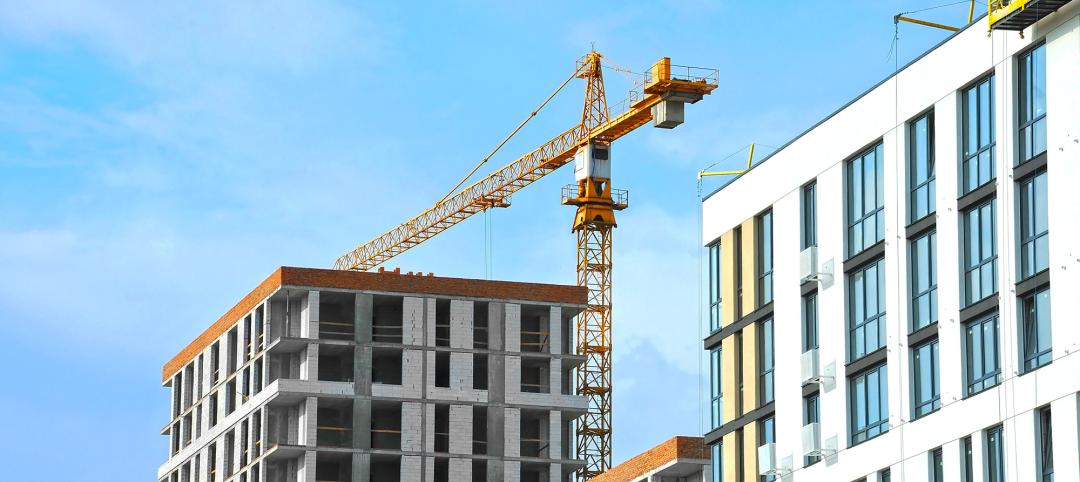President Trump and candidate Biden should establish and implement a nationwide plan for the distribution of approved coronavirus vaccines, the Associated General Contractors of America advised today in a letter to the two presidential candidates (Trump and Biden). Establishing such a nationwide plan will help avoid the confusion, delays and potential economic hardships that would result from delegating all responsibility to state and local officials.
“A thoughtful and comprehensive plan to rollout the ultimately approved vaccine for the coronavirus will ensure that the construction industry can continue to provide support for other critical sectors of the economy,” wrote Stephen E. Sandherr, the association’s chief executive office, in the letters to the two candidates. “There is the real potential that conflicting and confusing priorities at the state and local level will undermine the distribution process.”
Sandherr noted that one of the clear lessons to come out of the early response to the pandemic was that the distribution of essential medical supplies should not be completely delegated to the states. He noted that many of the association’s member firms struggled to locate essential personal protective equipment as states competed against each other to stockpile items like masks, hand sanitizers and gloves.
He cautioned that delegating all responsibility for the distribution of vaccines to the states would create similar problems. Instead, he urged federal officials to establish and implement a single federal plan for nationwide distribution of vaccines, just as it established and implemented a federal plan for their development. Such a nationwide plan would limit the risk of voluminous and conflicting guidelines at the state and local levels, Sandherr added.
The federal plan should also prioritize the rational distribution of vaccines, based on risk and need, to ensure that vaccinations are distributed to the same groups, in the same order, throughout the country. He suggested that the plan should begin with vulnerable populations, followed by essential workers who are at the greatest risk of infection, including first responders and health care workers. Construction workers should merit priority over other essential workers who have the option of working remotely, he added.
Sandherr also said a nationwide plan will mitigate the risk of public officials demanding that essential services like construction shut down until the vaccines are widely distributed. He noted that such shutdowns would inflict additional, needless, hardships on workers and their families. And the shutdowns would be in complete disregard of the widespread safety protocols that have been put in place to allow essential economic activities, like construction, to continue safely during the pandemic.
“The federal government and the private sector have gone to great lengths to facilitate the development of multiple vaccine candidates that will, hopefully, soon be approved and made available,” Sandherr noted. “The tremendous potential for this hard work and innovation to turn the country around will not, however, be realized if the subsequent distribution of vaccines is wholly delegated to state and local governments.”
Related Stories
MFPRO+ Research | Oct 15, 2024
Multifamily rents drop in September 2024
The average multifamily rent fell by $3 in September to $1,750, while year-over-year growth was unchanged at 0.9 percent.
Contractors | Oct 1, 2024
Nonresidential construction spending rises slightly in August 2024
National nonresidential construction spending increased 0.1% in August, according to an Associated Builders and Contractors analysis of data published today by the U.S. Census Bureau. On a seasonally adjusted annualized basis, nonresidential spending totaled $1.22 trillion.
The Changing Built Environment | Sep 23, 2024
Half-century real estate data shows top cities for multifamily housing, self-storage, and more
Research platform StorageCafe has conducted an analysis of U.S. real estate activity from 1980 to 2023, focusing on six major sectors: single-family, multifamily, industrial, office, retail, and self-storage.
Student Housing | Sep 17, 2024
Student housing market stays strong in summer 2024
As the summer season winds down, student housing performance remains strong. Preleasing for Yardi 200 schools rose to 89.2% in July 2024, falling just slightly behind the same period last year.
MFPRO+ Research | Sep 11, 2024
Multifamily rents fall for first time in 6 months
Ending its six-month streak of growth, the average advertised multifamily rent fell by $1 in August 2024 to $1,741.
Contractors | Sep 10, 2024
The average U.S. contractor has 8.2 months worth of construction work in the pipeline, as of August 2024
Associated Builders and Contractors reported today that its Construction Backlog Indicator fell to 8.2 months in August, according to an ABC member survey conducted Aug. 20 to Sept. 5. The reading is down 1.0 months from August 2023.
Construction Costs | Sep 2, 2024
Construction material decreases level out, but some increases are expected to continue for the balance Q3 2024
The Q3 2024 Quarterly Construction Insights Report from Gordian examines the numerous variables that influence material pricing, including geography, global events and commodity volatility. Gordian and subject matter experts examine fluctuations in costs, their likely causes, and offer predictions about where pricing is likely to go from here. Here is a sampling of the report’s contents.
Contractors | Aug 21, 2024
The average U.S. contractor has 8.4 months worth of construction work in the pipeline, as of July 2024
Associated Builders and Contractors reported today that its Construction Backlog Indicator held steady at 8.4 months in July, according to an ABC member survey conducted July 22 to Aug. 6. The reading is down 0.9 months from July 2023.
MFPRO+ Research | Aug 9, 2024
Apartment completions to surpass 500,000 for first time ever
While the U.S. continues to maintain a steady pace of delivering new apartments, this year will be one for the record books.
Contractors | Aug 1, 2024
Nonresidential construction spending decreased 0.2% in June
National nonresidential construction spending declined 0.2% in June, according to an Associated Builders and Contractors analysis of data published today by the U.S. Census Bureau. On a seasonally adjusted annualized basis, nonresidential spending totaled $1.21 trillion. Nonresidential construction has expanded 5.3% from a year ago.

















